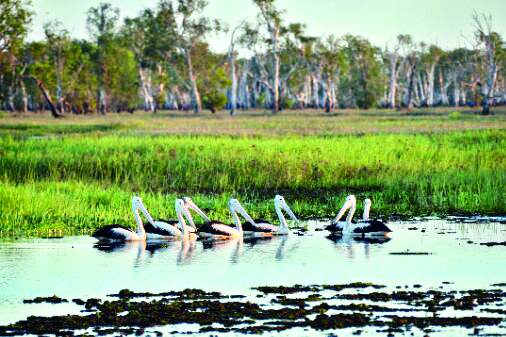
Kolkata, Feb. 9 -- The state Environment department will soon come up with a Nature Interpretation Centre at East Kolkata Wetlands (EKW) - a Ramsar site which is regarded as the lungs and kidney of Kolkata.
"We will be soon launching a Nature Interpretation Centre at EKW which will be responsible for generating awareness about conservation of wetlands and waterbodies. A common man visiting this Centre will get a comprehensive idea about a wetland," said Roshni Sen, Additional Chief Secretary of Environment department.
EKW, spread across 12,000 hectares of land, is a miracle of nature as it is capable of naturally treating waste water to the extent of 910 million litres per day. It is not only responsible for preventing the city from massive inundation in case of heavy rain but also ensures that groundwater depletion does not emerge as a major threat for the city. Fishes, vegetables and fruits are cultivated with this water and it has been found through laboratory tests which are conducted frequently that there is hardly any harmful property in the stuff that is grown here.
"We are always alert when it comes to monitoring and preventing encroachment at EKW," Sen said. EKW is known for its rich biodiversity and rare aquatic animals. Marsh Mongoose was discovered by the Zoological Survey of India (ZSI) from this wetland itself. The Environment department has made a list of all waterbodies with its exact location in terms of latitude and longitude with the purpose of monitoring them. "We will have a health card of all these documented waterbodies similar to that of human beings," said a senior official of the department.
According to Sen, Rasikbil, a lake in Cooch Behar district in North Bengal, has been nominated by the state government for the consideration of the Union environment, forests and climate change ministry as a potential Ramsar site. Rasikbil, if cleared, will be the third Ramsar site in the state after the EKW and the Sunderbans.
Rasikbil, a habitat for bird species like cormorants, storks, ibis, spoonbills, kingfishers, parrots, owls and many others, is a major tourist spot in North Bengal.
Published by HT Digital Content Services with permission from Millennium Post.
